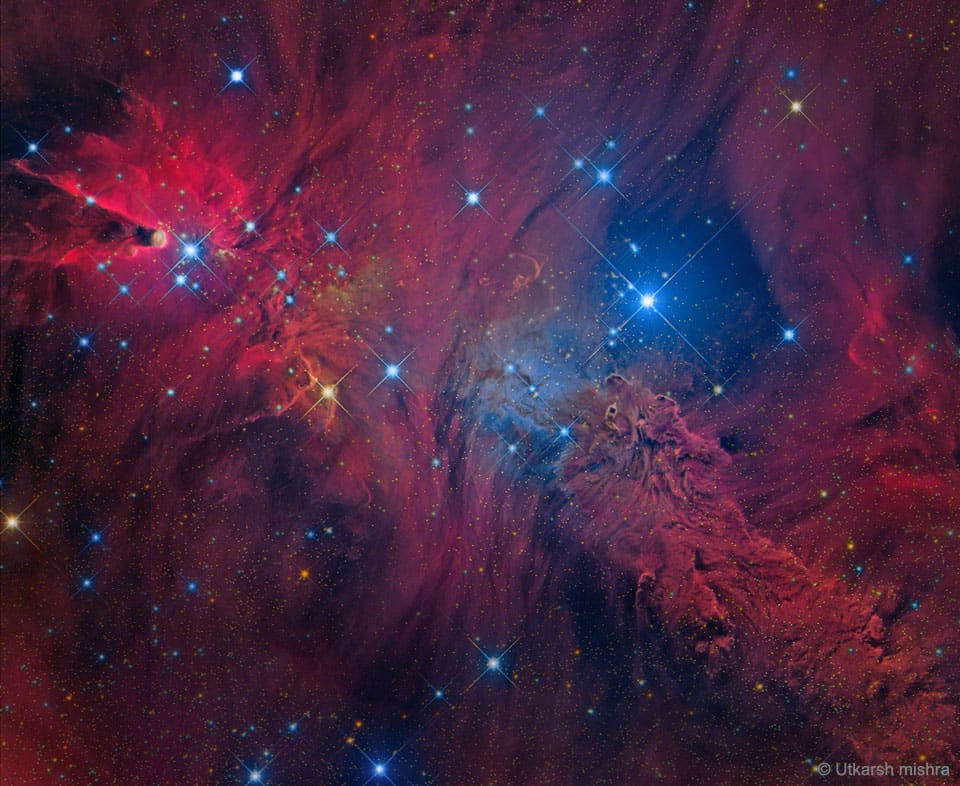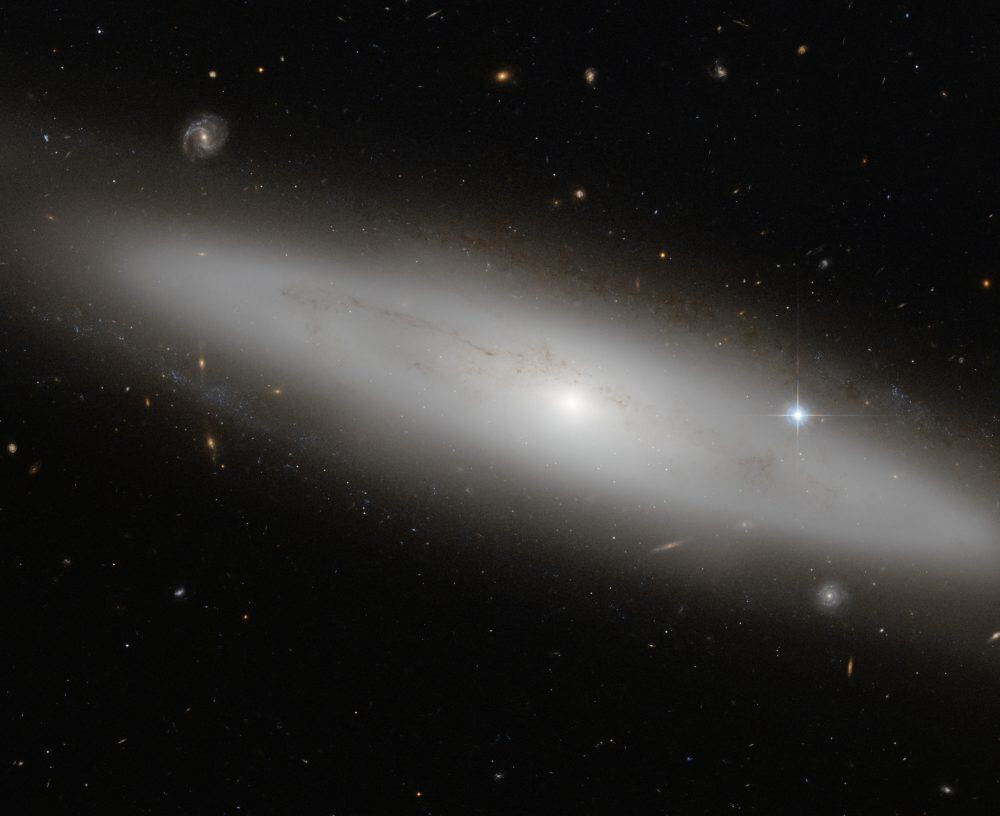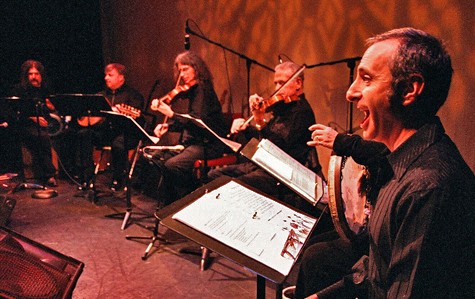Blog
Jan Hammer (Czech pronunciation: [ˈjan ˈɦamɛr]) (born 17 April 1948) is a Czech-American musician, composer and record producer. He first gained his most visible audience while playing keyboards with the Mahavishnu Orchestra in the early 1970s, as well as his film scores for television and film including “Miami Vice Theme” and “Crockett’s Theme“, from the 1980s television program, Miami Vice. He has continued to work as both a musical performer and producer, expanding to producing film later in his career.
Hammer has collaborated with some of the era’s most influential jazz and rock musicians such as John McLaughlin, Jeff Beck, Al Di Meola, Mick Jagger, Carlos Santana, Stanley Clarke, Tommy Bolin, Neal Schon, Steve Lukather and Elvin Jones. He has composed and produced at least 14 original motion picture soundtracks, the music for 90 episodes of Miami Vice and 20 episodes of the television series Chancer.
His compositions have won him several Grammy Awards. Jan Hammer was born in Prague, then capital of Czechoslovakia (now the Czech Republic).
Charles Anthony “Buster” Williams (born April 17, 1942 in Camden, New Jersey) is an American jazz bassist. Williams is known for his membership in pianist Herbie Hancock‘s early 1970s group, working with guitarist Larry Coryell from the 1980s to present, working in the Thelonious Monk repertory band Sphere and as the accompanist of choice for many singers, including Nancy Wilson. Williams’ father, Charles Anthony Williams, Sr., was a musician who played bass, drums, and piano, and had band rehearsals in the family home in Camden, New Jersey, exposing Williams to jazz at an early age. Williams was particularly inspired to focus on bass after hearing his father’s record of Star Dust, performed by Oscar Pettiford, and started playing in his early teens.
In October 1968, Williams moved to New York City and continued to work steadily, playing shows with Art Blakey, Herbie Mann, and Mary Lou Williams, while recording for Atlantic, Blue Note, and Prestige with artists such as McCoy Tyner, Dexter Gordon, Roy Ayers, Stanley Turrentine, Frank Foster, Illinois Jacquet, and, once again, Gene Ammons (recently returned from a seven-year stint in Joliet). Having worked with Herbie Hancock in the Miles Davis Quintet, Williams became a fixture of Hancock’s Mwandishi Sextet, recording three albums for Warner Bros., Sextant for Columbia, The Prisoner for Blue Note, and two more under Eddie Henderson‘s name for Capricorn. The Mwandishi Sextet explored new electronic sounds in jazz and featured Williams on both acoustic and electric bass.
https://www.youtube.com/watch?v=xWYiwyMsqFc
more...Strange shapes and textures can be found in neighborhood of the Cone Nebula. The unusual shapes originate from fine interstellar dust reacting in complex ways with the energetic light and hot gas being expelled by the young stars. The brightest star on the right of the featured picture is S Mon, while the region just below it has been nicknamed the Fox Fur Nebula for its color and structure. The blue glow directly surrounding S Mon results from reflection, where neighboring dust reflects light from the bright star. The red glow that encompasses the whole region results not only from dust reflection but also emission from hydrogengas ionized by starlight. S Mon is part of a young open cluster of stars named NGC 2264, located about 2500 light years away toward the constellation of the Unicorn (Monoceros). Even though it points right at S Mon, details of the origin of the mysterious geometric Cone Nebula, visible on the far left, remain a mystery.
more...Herbert Jay Solomon (April 16, 1930 – July 1, 2003), known by his stage name Herbie Mann, was an American jazz flutist and important early practitioner of world music. Early in his career, he also played tenor saxophone and clarinet (including bass clarinet), but Mann was among the first jazz musicians to specialize on the flute. His most popular single was “Hijack“, which was a Billboard No. 1 dance hit for three weeks in 1975.
Mann emphasized the groove approach in his music. Mann felt that from his repertoire, the “epitome of a groove record” was Memphis Underground or Push Push, because the “rhythm section locked all in one perception.”Herbie Mann was born in Brooklyn, New York, to Jewish parents, Harry C. Solomon (May 30, 1902 – May 31, 1980), who was of Russian descent, and Ruth Rose Solomon (née Brecher) (July 4, 1905 – November 11, 2004), of Romanian descent who was born in Bukovina, Austria-Hungary but immigrated to the United States with her family at the age of 6.
John Wesley Funchess (April 16, 1931 – February 1, 1994) known professionally as John (or Johnny) Littlejohn, was an American electric blues slide guitarist. He was active on the Chicago blues circuit from the 1950s to the 1980s. Born in Lake, Mississippi, Littlejohn first learned to play the blues from Henry Martin, a friend of his father’s. In 1946 he left home and traveled widely, spending time in Jackson, Mississippi; Arkansas; Rochester, New York; and Gary, Indiana. He settled in Gary in 1951, playing whenever possible in the nearby Chicago area. Through his connections in Gary, he was acquainted with Joe Jackson, the patriarch of the musical Jackson family, and Littlejohn and his band reputedly served as an occasional rehearsal band for the Jackson 5 in the mid- to late 1960s.
Littlejohn played regularly in Chicago clubs (he was filmed by drummer Sam Lay playing with Howlin’ Wolf‘s band about 1961) but did not make any studio recordings until 1968, when he cut singles for several record labels. Later that year he recorded an album for Arhoolie Records and four songs for Chess Records. The Chess tracks were not issued at the time.
more...Bennie Green (April 16, 1923 – March 23, 1977) was an American jazz trombonist.
Born in Chicago, Illinois, Green worked in the orchestras of Earl Hines and Charlie Ventura, and recorded as bandleader through the 1950s and 1960s. According to critic Scott Yanow of Allmusic, Green’s style straddled swing music and soul, making him one of the few trombonists of the 1950s and ’60s uninfluenced by the pioneering sound of J.J. Johnson.
Green relocated to Las Vegas where he played in hotel bands for the last decade of his career, though he made occasional appearances at jazz festivals. He died on March 23, 1977.
https://www.youtube.com/watch?v=1hIAmnOnsX8
more...
Alton Purnell (April 16, 1911 – January 14, 1987) was an American jazz pianist. He was a longtime performer in Dixieland jazz. Purnell was born in New Orleans on April 16, 1911. He sang before playing piano professionally, beginning to do so locally in New Orleans in 1928.[1] He played in the 1930s with Isaiah Morgan, Alphonse Picou, Big Eye Louis Nelson, Sidney Desvigne, and Cousin Joe, and with Bunk Johnson in the middle of the 1940s. Purnell joined George Lewis‘s band after Johnson’s broke up in 1946, and remained there well into the 1950s, including for international tours.
In 1957 Purnell relocated to Los Angeles. There he worked with Teddy Buckner, Young Men from New Orleans, Joe Darensbourg, Kid Ory, Barney Bigard, and Ben Pollack. He also recorded extensively as a leader, including for Warner Bros. Records, GHB, and Alligator Jazz. In the 1970s and 1980s, Purnell was a regular at the South Bay New Orleans Jazz Club in Gardina California, with or often shared the stage with Ed Garland or Buddy Johnson.
more...
https://www.youtube.com/watch?v=S4PkLg_2clI&t=299s
more...The constellation of Virgo (The Virgin) is the largest of the Zodiac constellations, and the second largest overall after Hydra (The Water Snake). Its most appealing feature, however, is the sheer number of galaxies that lie within it. In this picture, among a crowd of face- and edge-on spiral, elliptical, and irregular galaxies, lies NGC 4866, a lenticular galaxy situated about 80 million light-years from Earth. Lenticular galaxies are somewhere between spirals and ellipticals in terms of shape and properties. From the picture, we can appreciate the bright central bulge of NGC 4886, which contains primarily old stars, but no spiral arms are visible. The galaxy is seen from Earth as almost edge-on, meaning that the disc structure — a feature not present in elliptical galaxies — is clearly visible. Faint dust lanes trace across NGC 4866 in this image, obscuring part of the galaxy’s light. To the right of the galaxy is a very bright star that appears to lie within NGC 4886’s halo. However, this star actually lies much closer to us; in front of the galaxy, along our line of sight. These kinds of perspective tricks are common when observing, and can initially deceive astronomers as to the true nature and position of objects such as galaxies, stars, and clusters. This sharp image of NGC 4866 was captured by the Advanced Camera for Surveys, an instrument on the NASA/ESA Hubble Space Telescope. A version was entered into the Hubble’s Hidden Treasures image processing competition by contestant Gilles Chapdelaine. Credit: ESA/Hubble & NASA Acknowledgement: Gilles Chapdelaine About the Object Name: ngc 4866 Type: • Local Universe : Galaxy : Type : Lenticular • Galaxies Images/Videos Distance: 80 million light years Colours & filters Band Wavelength Telescope Infrared I 814 nm Hubble Space Telescope ACS Optical B 475 nm Hubble Space Telescope ACS .
more...Irving Herbert Pomeroy III (April 15, 1930 – August 11, 2007) was a jazz trumpeter, teacher, and the founder of the MIT Festival Jazz Ensemble. Pomeroy began playing trumpet at an early age. In his early teens he started performing in Boston, claiming inspiration from the music of Louis Armstrong. In 1946, at the age of 16, he became a member of the Musicians Union in Gloucester after the union did not have enough members to conduct a meeting. He studied dentistry at Harvard University for a year but dropped out to pursue his jazz career.
After high school, he studied music from 1950 to 1952 at the Schillinger House in Boston. Remaining in Boston, he played with Charlie Parker for one week in 1953, then briefly with Charlie Mariano before going on tour with Lionel Hampton and Stan Kenton. Back in Boston, he played with Serge Chaloff and was hired to teach at Schillinger after it had been renamed Berklee School of Music. During the latter part of the 1950s he was the leader of a sixteen-piece band which included Mariano, Bill Berry, Jaki Byard, Joe Gordon, and Boots Mussulli. For two years after that, he led another band, which included Alan Dawson, Hal Galper, Michael Gibbs, Dusko Goykovich, and Sam Rivers. He worked in pit orchestras for Broadway shows passing through Boston. Beginning in 1963 he led bands at the Massachusetts Institute of Technology. He led a band until 1993, two years before retiring from Berklee.
more...Sir Neville Marriner, CH, CBE (15 April 1924 – 2 October 2016) was an English violinist who became “one of the world’s greatest conductors“. He founded the Academy of St Martin in the Fields, and his partnership with them is the most recorded of any orchestra and conductor. Marriner was born in Lincoln, England, the son of Herbert Marriner, a carpenter, and his wife Ethel (née Roberts). He was educated at Lincoln School (then a grammar school), where he played in a jazz band with the composer Steve Race. He initially learned the violin as well as the piano from his father, and later studied the violin with Frederick Mountney. In 1939, he went to the Royal College of Music in London, getting the opportunity to play among the second violins of the London Symphony Orchestra, then conducted by Henry Wood, because many of its members had joined up after the outbreak of the Second World War. He joined up himself in 1941, serving in a reconnaissance role in the British Army, but was invalided out in 1943 with kidney problems. He returned to the Royal College, where he continued his studies with the violinist Billy Reed. He then attended the Paris Conservatoire, where he studied with the violinist René Benedetti.
Marriner was briefly a music teacher at Eton College. In 1948, he became a professor of the Royal College of Music. In 1948 or 1949, he took up the position of second violinist of the Martin String Quartet, continuing to play with the quartet for 13 years. He had met the harpsichordist Thurston Dart while recuperating from kidney damage during the war, and they formed a duo together, which expanded to the Virtuoso String Trio with Peter Gibbs. These were the precursors to Dart’s Jacobean Ensemble, in which Marriner played from 1951. He played the violin in two London orchestras: the Philharmonia Orchestra in the early 1950s, and the London Symphony Orchestra (LSO) as principal second violin (1954–69). He also played with the chamberorchestras of Reginald Jacques and Boyd Neel, as well as the London Mozart Players.
more...Richard Davis (born April 15, 1930) is an American jazz bassist. Among his most famous contributions to the albums of others are Eric Dolphy‘s Out to Lunch!, Andrew Hill‘s Point of Departure, and Van Morrison‘s Astral Weeks, of which critic Greil Marcus wrote (in The Rolling Stone Illustrated History of Rock and Roll), “Richard Davis provided the greatest bass ever heard on a rock album.”Born in Chicago, Davis began his musical career with his brothers, singing bass in his family’s vocal trio.[1] He studied double bass in high school with his music theory teacher and band director, Walter Dyett. He was a member of Chicago Youth Symphony Orchestras (then known as the Youth Orchestra of Greater Chicago) and played in the orchestra’s first performance at Chicago’s Orchestra Hall on November 14, 1947. After high school, he studied double bass with Rudolf Fahsbender of the Chicago Symphony Orchestra while attending VanderCook College of Music.
After college, Davis performed in dance bands. The connections he made led him to pianist Don Shirley. In 1954 he and Shirley moved to New York City and performed together until 1956, when Davis began playing with the Sauter-Finegan Orchestra. In 1957, he became part of Sarah Vaughan‘s rhythm section, touring and recording with her until 1960.
During the 1960s, Davis was in demand in a variety of musical circles. He worked with many of the small jazz groups of the time, including those led by Eric Dolphy, Jaki Byard, Booker Ervin, Andrew Hill, Elvin Jones, and Cal Tjader. From 1966–1972, he was a member of The Thad Jones/Mel Lewis Orchestra. He has also played with Don Sebesky, Oliver Nelson, Frank Sinatra, Miles Davis, Dexter Gordon, and Ahmad Jamal.
https://www.youtube.com/watch?v=96IUcUIy0IY
more...POSITIVE VIBRATIONS performing 3 weeks from today at the 45th Annual MAYDAY PARADE, CEREMONY & FESTIVAL
Sunday May 5th 6pm
Roots Reggae sensation POSITIVE VIBRATIONS will be performing in the grass at the Ceremony Site for this years Mayday following the Ceremony Performance.
Featuring Van Nixon, Todd Matheson, Larry McCabe, Paul Strickland, Onesmo Kibira, Tim Siefkes and mick “Bamboula” laBriola.
https://www.youtube.com/watch?v=f_hgqJCrtN8
BEAU KOO JACKS performing 3 weeks from today at the
45th Annual MAYDAY PARADE, CEREMONY & FESTIVAL
Sunday May 5th 5pm
New Orleans extravaganza BEAU KOO JACKS will be performing in the grass at the Ceremony Site for this years Mayday following the Ceremony Performance.
Featuring Van Nixon, Jamie Carter, Todd Matheson, Larry McCabe, Paul Strickland, Art Haynes, Tim Siefkes and mick “Bamboula” laBriola.
VOICES OF SEPHARAD
Easter Weeks Maundy Thursday April 18th 5:30pm
Westminster Presbyterian Church
with David Harris, David Burk and mick laBriola
https://www.youtube.com/watch?v=kPHvZQhpFIY
More Posts
- Cozmos NGC 2264
- Curley Russell
- Clarence “Frogman” Henry
- Mike Longo
- FREE UKRAINE World Music Trio Mandili
- Daily Roots with Luciano
- Cozmos IC 447/446
- Andy Narell
- Bill Frisell
- Wilson Pickett
- José Mangual
- Daily Roots with Dennis Brown
- Flamenco Fridays with Ukrainian Guitarist Estas Tonne
- Happy St Paddys Day 2022
- Cozmos NGC 5129
- Paul Kantner
- Zoletta Lynn Taylor
- Paul Horn
- Nat King Cole
- Lovie Lee



